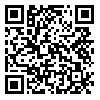1. Fox E, Melamed E, Frohman E. Diagnosis and monitoring of patient with multiple sclerosis. Practical Neology. 2018;17(6):32–8.
2. Vukusic S, Marignier R, Ciron J, Bourre B, Cohen M, Deschamps R, et al. Pregnancy and neuromyelitis optica spectrum disorders: 2022 recommendations from the French multiple sclerosis society. Mult Scler. 2023;29(1):37–51. [
DOI]
3. Buysse DJ, Reynolds CF, Monk TH, Berman SR, Kupfer DJ. The Pittsburgh Sleep Quality Index: a new instrument for psychiatric practice and research. Psychiatry Res. 1989;28(2):193–213. [
DOI]
4. Parsons CE, Schofield B, Batziou SE, Ward C, Young KS. Sleep quality is associated with emotion experience and adaptive regulation of positive emotion: an experience sampling study. J Sleep Res. 2022;31(4):e13533. [
DOI]
5. Young K, Sandman C, Craske M. Positive and negative emotion regulation in adolescence: links to anxiety and depression. Brain Sci. 2019;9(4):76. [
DOI]
6. Schäfer JÖ, Naumann E, Holmes EA, Tuschen-Caffier B, Samson AC. Emotion regulation strategies in depressive and anxiety symptoms in youth: a meta-analytic review. J Youth Adolesc. 2017;46(2):261–76. [
DOI]
7. Brass SD, Duquette P, Proulx-Therrien J, Auerbach S. Sleep disorders in patients with multiple sclerosis. Sleep Med Rev. 2010;14(2):121–9. [
DOI]
8. Nasri M, Ahadi H, Dortaj F. The effectiveness of transdiagnostic treatment on cognitive flexibility, emotion regulation and Hb factor in patients with type 2 diabetes. Psychological Achievements. 2017;24(2):81–100. [Persian] [
Article]
9. Dennis JP, Vander Wal JS. The Cognitive Flexibility Inventory: instrument development and estimates of reliability and validity. Cogn Ther Res. 2010;34(3):241–53. [
DOI]
10. Clark DA, Beck AT. Cognitive theory and therapy of anxiety and depression: convergence with neurobiological findings. Trends Cogn Sci. 2010;14(9):418–24. [
DOI]
11. Mahdavi M, Bagholi H. Comparing the effectiveness of cognitive behavioral group therapy and mindfulness therapy on sleep quality of multiple sclerosis patients. Clinical Psychology. 2020;11(4):67–76. [Persian] [
Article]
12. Barlow DH, Farchione TJ, Sauer-Zavala S, Latin HM, Ellard KK, Bullis JR, et al. Unified protocol for transdiagnostic treatment of emotional disorders: therapist guide. New York: Oxford University Press; 2011.
13. Saylik R, Williams AL, Murphy RA, Szameitat AJ. Characterising the unity and diversity of executive functions in a within-subject fMRI study. Sci Rep. 2022;12(1):8182. [
DOI]
14. Douw L, Wakeman DG, Tanaka N, Liu H, Stufflebeam SM. State-dependent variability of dynamic functional connectivity between frontoparietal and default networks relates to cognitive flexibility. Neuroscience. 2016;339:12–21. [
DOI]
15. Sternheim LC, Van Passel B, Dingemans A, Cath D, Danner UN. Cognitive and experienced flexibility in patients with anorexia nervosa and obsessive compulsive disorder. Front Psychiatry. 2022;13:868921. [
DOI]
16. Puttevils L, Vanderhasselt MA, Horczak P, Vervaet M. Differences in the use of emotion regulation strategies between anorexia and bulimia nervosa: a systematic review and meta-analysis. Compr Psychiatry. 2021;109:152262. [
DOI]
17. Ebrahimi M, Shahabizadeh F, Esmaeili AA, Ahi Q. The effect of trans diagnostic based emotion efficiency therapy on emotional schemas and sleep quality of anxious nurses. Psychiatric Nursing. 2022;9(6):38–48. [Persian] [
Article]
18. Nota JA, Chu C, Beard C, Björgvinsson T. Temporal relations among sleep, depression symptoms, and anxiety symptoms during intensive cognitive–behavioral treatment. J Consult Clin Psychol. 2020;88(11):971–82. [
DOI]
19. Leahy RL, Wupperman P, Edwards E, Shivaji S, Molina N. Metacognition and emotional schemas: effects on depression and anxiety. J Cogn Ther. 2019;12(1):25–37. [
DOI]
20. McKay M, West A. Emotion efficacy therapy: a brief, exposure-based treatment for emotion regulation integrating ACT and DBT. New Harbinger Publications; 2016.






